Media coverage
Share
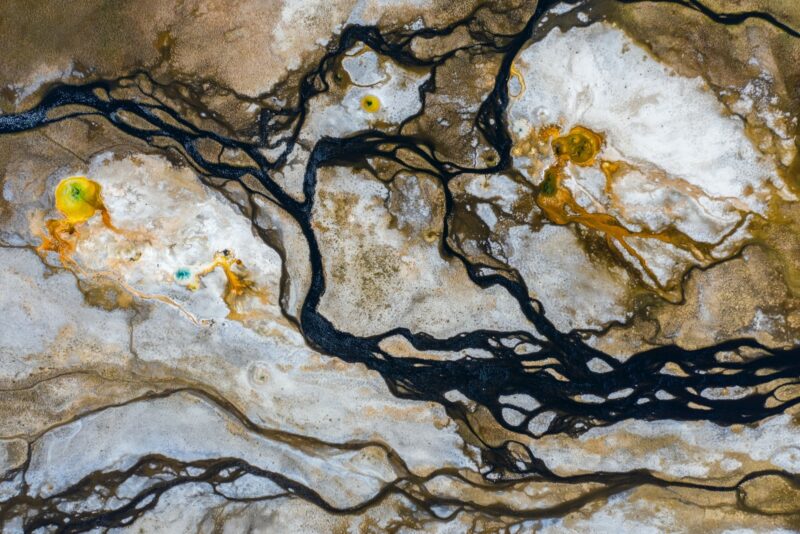

ABC News
Analysis by climate science policy institute Climate Analytics released this month estimated about 87 per cent of emissions linked to the North West Shelf between 2024 and 2050 were scope three.
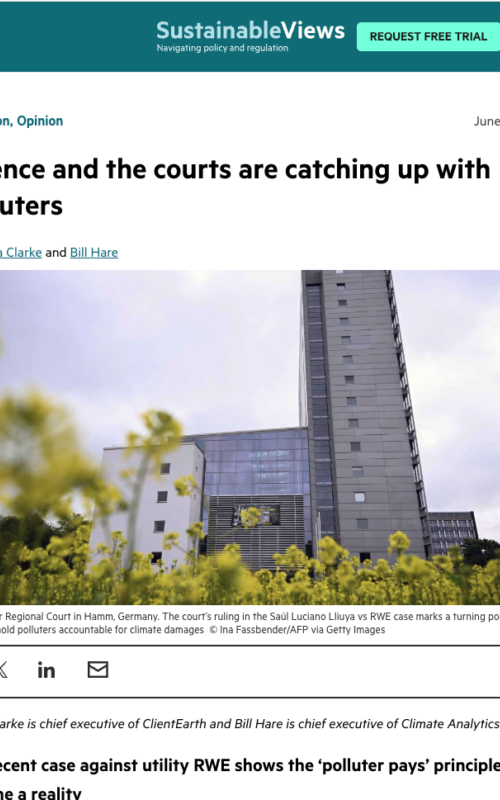
FT Sustainable Views
The recent case against utility RWE shows the ‘polluter pays’ principle could become a reality.
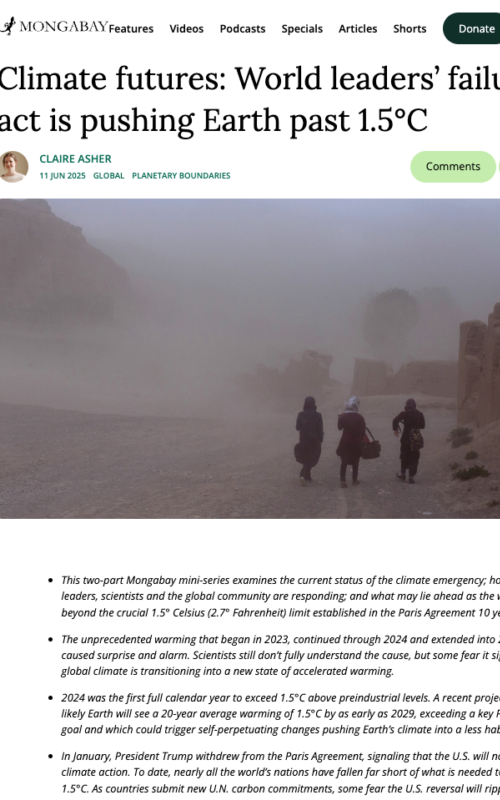
Mongabay
The last round of nationally determined contributions (NDCs), submitted in 2021 by the world’s nations, put Earth on course to warm by between 2.6°C and 2.8°C by century’s end, according to the Climate Action Tracker.
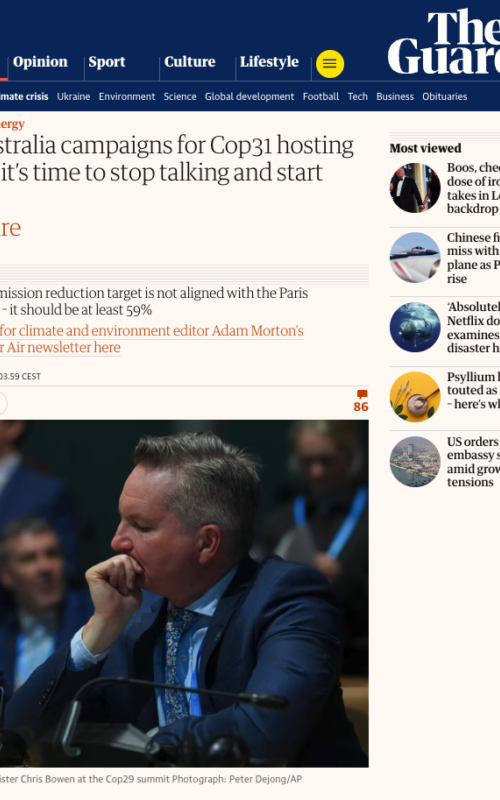
The Guardian
Our latest Climate Action Tracker Australia profile shows the government’s efforts to cut emissions are still rated “insufficient” – the 43% emission reduction target would need to be at least 59% to align with the Paris agreement.
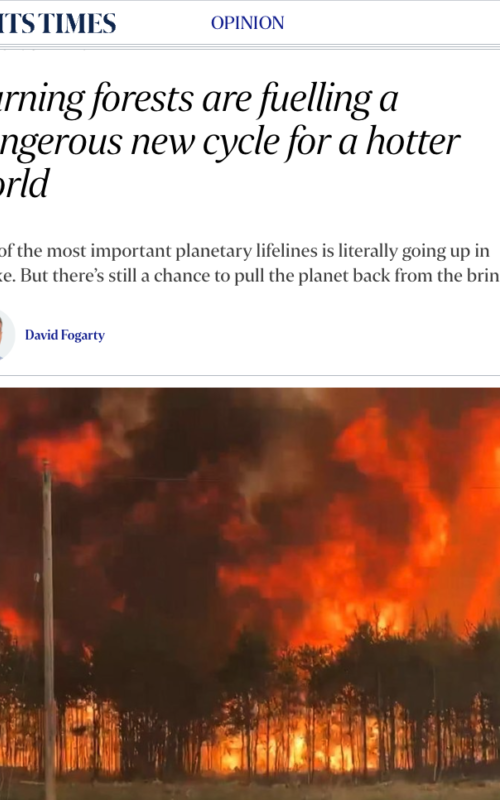
The Straits Times
Scores of wildfires – made more intense by global warming – are burning Canadian forests, which in turn speeds up global warming. This climatic feedback loop has scientists worried. “It’s very clear the terrestrial carbon sink is weakening,” Bill Hare told the Straits Times.
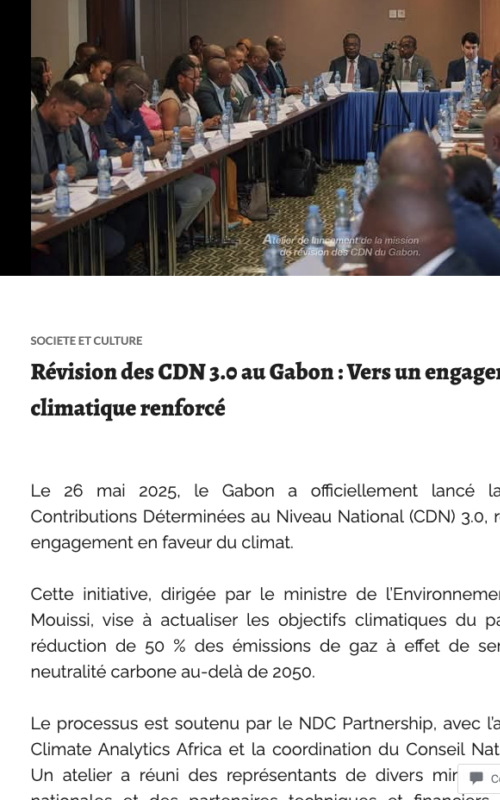
Gabon Infos Live
Last week, Gabon officially launched its revised Nationally Determined Contributions (NDC) 3.0. The process was supported by the NDC Partnership, with technical support from Climate Analytics Africa, and coordination from the National Climate Council.

AFP
Ahead of this year's hajj pilgrimage to Mecca, Saudi Arabia has doubled their efforts to mitigate heat-related risks following last year's lethal heatwave that left 1,301 pilgrims dead when temperatures soared to 51.8°C. "They were caught by surprise because the intensity of the heat was so high that their adaptation measures failed," Fahad Saeed told AFP.
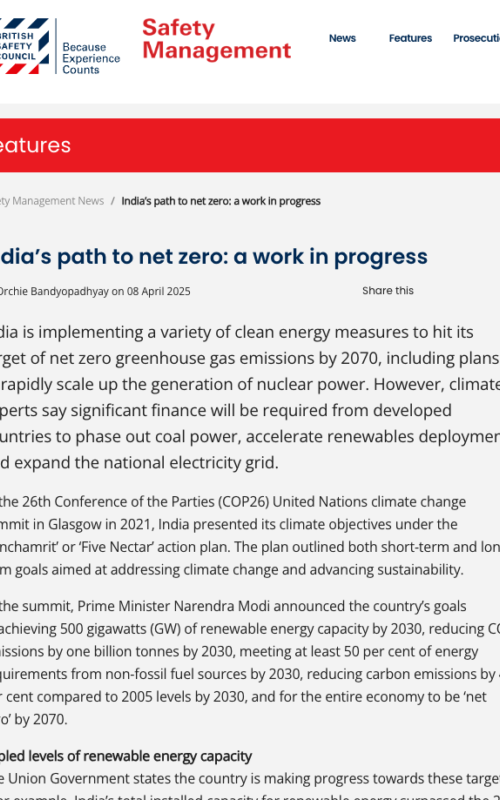
Safety Management News
India is currently lagging far behind in adding to its solar and wind energy capacity, threatening the country’s ability to contribute to the UN’s goal of limiting global warming to under 1.5°C. At the current pace of rollout, India will fall short of the needed capacity in 2030 by 140 GW of solar and 70 GW of wind, says Climate Analytics.

World Ports Org
“While the International Energy Agency shows no role for fossil gas in the global energy transition, the LNG shipbuilding industry appears to be heading in the opposite direction, which could be to the detriment of everybody involved in the industry,” Thomas Houlie told World Ports Org.
